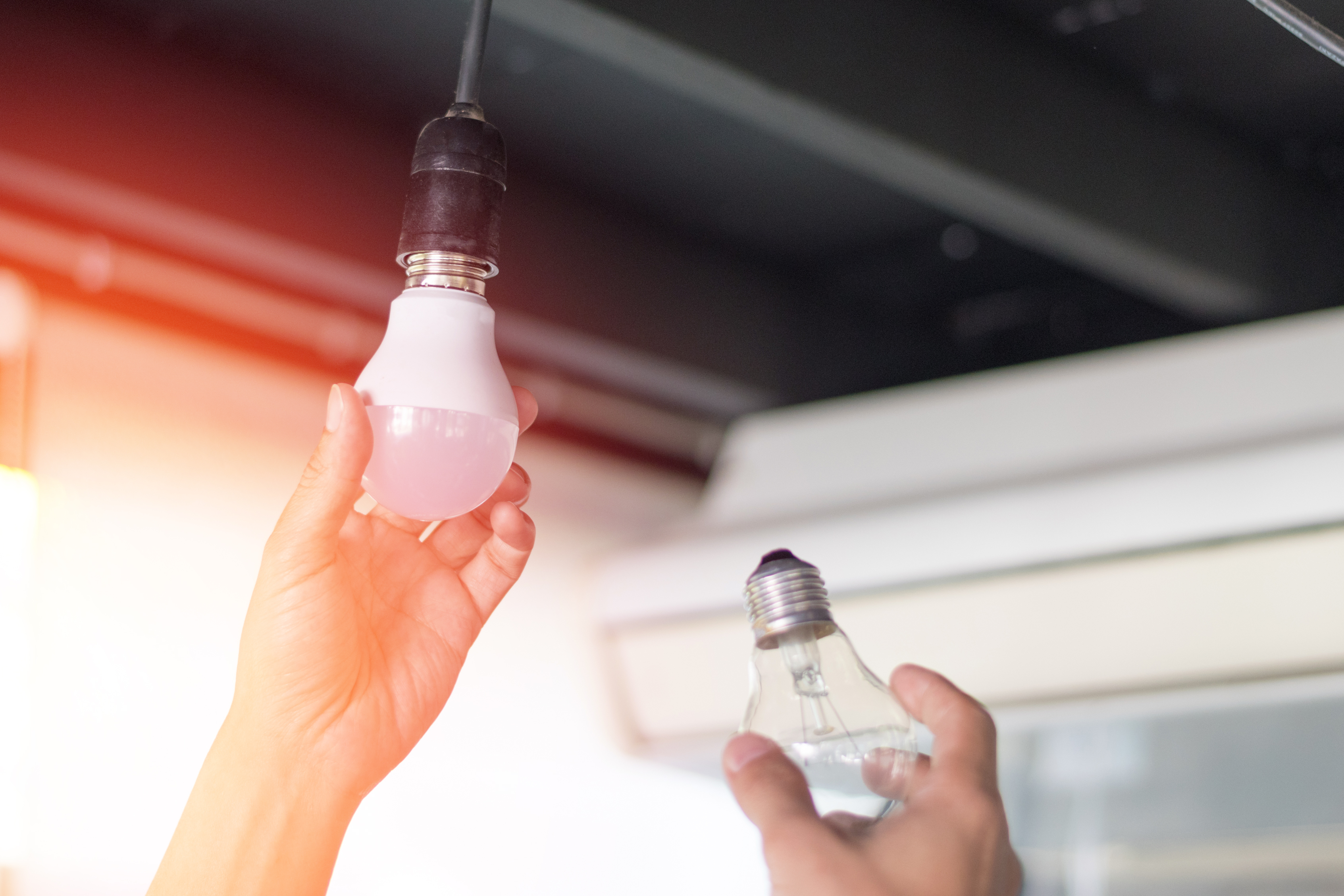 In April, PRINTING United Alliance (PrUA) announced its 2020 Sustainable Business Recognition Award recipients that had demonstrated practices aligning with standards adopted from the United Nations Sustainable Development Goals (SDGs). One adopted goal was SDG 8 (Decent Work and Economic Growth), which aims to promote inclusive and sustainable economic growth; full and productive employment; and decent work for all. We're sharing how some of our recipients achieved this goal (and how you may also be integrating this SDG's targets in your own business without realizing it).
In April, PRINTING United Alliance (PrUA) announced its 2020 Sustainable Business Recognition Award recipients that had demonstrated practices aligning with standards adopted from the United Nations Sustainable Development Goals (SDGs). One adopted goal was SDG 8 (Decent Work and Economic Growth), which aims to promote inclusive and sustainable economic growth; full and productive employment; and decent work for all. We're sharing how some of our recipients achieved this goal (and how you may also be integrating this SDG's targets in your own business without realizing it).
To explain how to work toward this lofty objective, the UN identifies 11 targets specifying actions a business can take. For the Sustainable Business Recognition Program, PrUA's Sustainability, Safety, Health and Personnel Advisory Council chose five of these targets that would apply to printing operations. Applicants had to show how they were meeting at least one of these targets.
The companies that achieved a Silver recognition for SDG 8 were:
• Global Products (St. Peters, Mo.), which provides promotional items, fundraiser items, logo apparel, and merchandise to organizations of all shapes and sizes
• Impact International Pty Ltd (Australia), a family-owned company that has built a reputation for designing and manufacturing industry-leading packaging tubes for a wide range of internationally recognized companies
• Lawson Screen & Digital Products (St. Louis, Mo.), which offers numerous printing equipment and supplies as well as training classes and how-to support
• LEM Products (Montgomeryville, Pa.), which produces stock and customized identification products
• NAU Printing Services (Flagstaff, Ariz.), a full-service facility providing small- and large-format printing services to the Northern Arizona University community
• Night Owls Print (Houston), a custom merchandising shop mainly focused on water-based screen printing, but specializing in other items such as enamel pins, embroidered goods, and promotional products
• Packsize International (Salt Lake City), a corrugated material manufacturer and on-demand packaging system provider
• Wythken Printing (Richmond, Va.), a full-service commercial printing company
It used to be a stigma that to grow business, the quality of the environment had to suffer. Here's how these companies, and many others, are breaking that stigma by becoming more efficient by decoupling economic growth from environmental degradation.
Target 8.2: Achieve Higher Levels of Economic Productivity Through Diversification, Technological Upgrading, and Innovation
Packsize’s introduction of its On Demand Packaging software in 2002 popularized the method of providing the right size package for each item it holds — which replaced the conventional store-and-retrieve box model. This change helps to reduce complexity, time, packaging material waste, and unnecessary shipping costs. Meanwhile, Impact International created a solution to get brands to easily change over to environmentally friendly packaging without having to spend a fortune on stability testing. They created three types of sustainable, easily recyclable tubes — creatively named “Craig,” “Margorie,” and “Sarah" — that eliminate or minimize the stability tests needed before a brand uses new packaging.
LEM Products, Wythken Printing, and Night Owls Print Shop all integrated technological upgrades to achieve higher levels of economic productivity. LEM replaced analog technologies with digital, which has helped reduce setup time, downtimes, and waste (with a 24% reject reduction), while increasing overall revenue. Wythken Printing reduced monotonous labor for employees by implementing automation software. Night Owls Print Shop utilized discharge practices to save and re-use inks, helping it become leaner and more efficient.
Target 8.4: Improve Resource Efficiency in Consumption and Production and Endeavor to Decouple Economic Growth from Environmental Degradation
Impact International has installed a solar farm made up of 1,000 panels that generates 1,400 kW of power and saves 1,300 kg of CO2 each day. This power does not have to be purchased and it allows them to manufacture products off the grid. They are also saving money on their water bill and landfill fees by recycling more than 70% of their waste and reducing water usage by 50%.
Global Products has also made monumental efficiencies in its utility usage — water use has reduced 48%; gas, 19%; and electric, 11%. They have also reduced the frequency of transporting products between their facilities, reducing CO2 emissions and overall transportation costs.
NAU Printing Services made simple changes such as switching to LED light bulbs, utilizing task lighting, unplugging devices that use vampire energy as often as possible, shutting lights off overnight, and switching to energy save modes on printers and computers — all of which has saved a drastic amount on their utility bill.
Many companies, like Packsize, are exclusively giving their business to those that offer sustainable options for goods and services and follow a high standard of business ethics and integrity. Packsize audits its suppliers annually against these standards to ensure they are using their purchasing power toward those also committed to sustainability. Wythken Printing also ensures the prosperity of sustainable businesses by regularly educating employees and clients on the positive impacts of using renewable resources, like FSC certified paper as opposed to electronic alternatives.
 Target 8.5: Achieve Full and Productive Employment and Decent Work for All with Equal Pay for Work of Equal Value
Target 8.5: Achieve Full and Productive Employment and Decent Work for All with Equal Pay for Work of Equal Value
A few companies have explicitly explained how they contribute to this target. Packsize invests in its employees by providing competitive wages and salaries and matched 401(k) savings plans. Its HR department regularly monitors employee participation in these programs to assess their effectiveness. Lawson Screen & Digital Products ensures employees can take full advantage of their benefits by keeping financial advisors at their disposal.
Target 8.6: Reduce the Proportion of Youth Not in Employment, Education, or Training
NAU Printing Services, Wythken Printing, and Packsize all have youth-worker programs to expand interest in the industry and provide young people with practical work experience. NAU employs students part time while, Wythken partners with a local college to offer temp positions. Lastly, Packsize runs an internship program and actively supports regional educational programs.
Target 8.8: Protect Labor Rights and Promote Safe and Secure Working Environments for All Workers
Safety is a priority in all manufacturing facilities. Lawson Screen & Digital Products has increased equipment automation and integrated regular employee training refreshers to ensure workplace safety. Safety at Packsize is monitored and reported daily to be constantly aware of any corrective actions that can be made. Global Products concerns itself with others' safety by ensuring all of its vendors follow labor laws.
Decent Work and Economic Growth is an important piece of the sustainable development puzzle that people often forget. Many of the other goals, such as growth of renewable resources, climate action, reaching zero hunger, or no poverty, rely on countries having a booming economy. In other words, development cannot happen sustainably for businesses without successfully integrating environmental and social efforts. There is no better time to jump on board — look for ways you can reduce your environmental footprint while saving money, implement an internship program, or find an innovative way to become more efficient. Then, tell us what you were able to accomplish for next year’s Sustainable Business Recognition Program!
Check out our previous posts to learn more about the Sustainable Business Recognition Program and its 2020 winners and to see how they've achieved other SDGs.